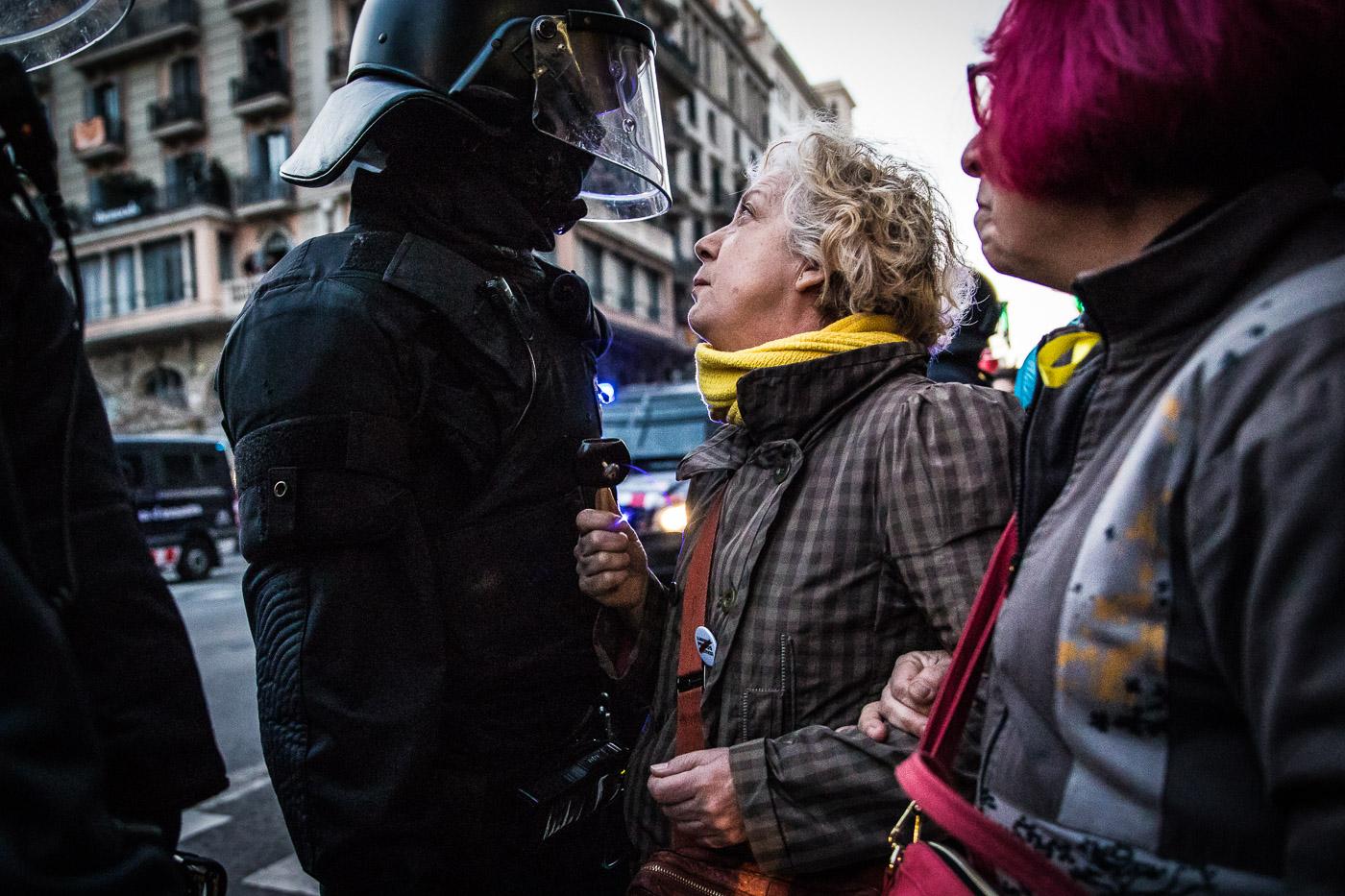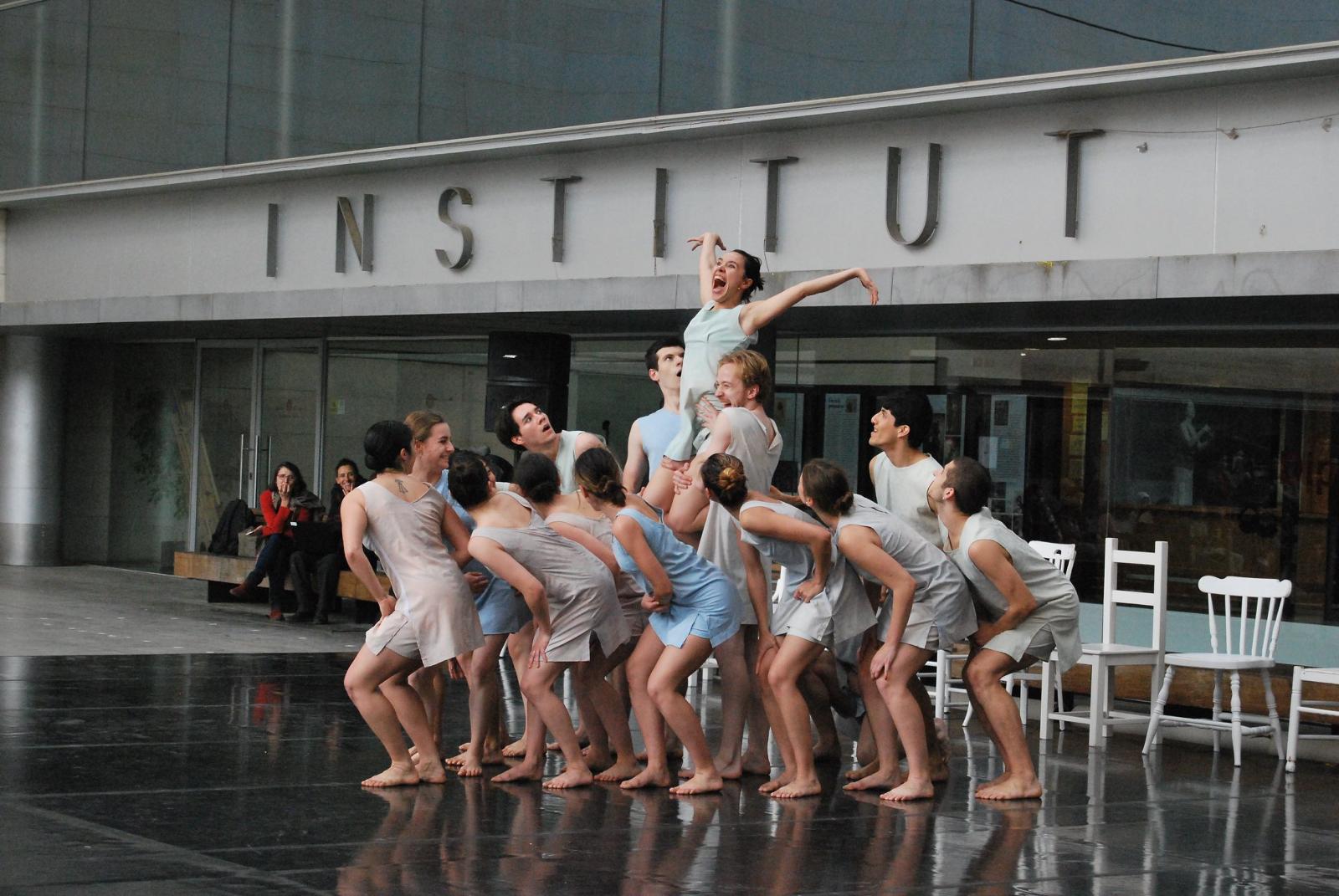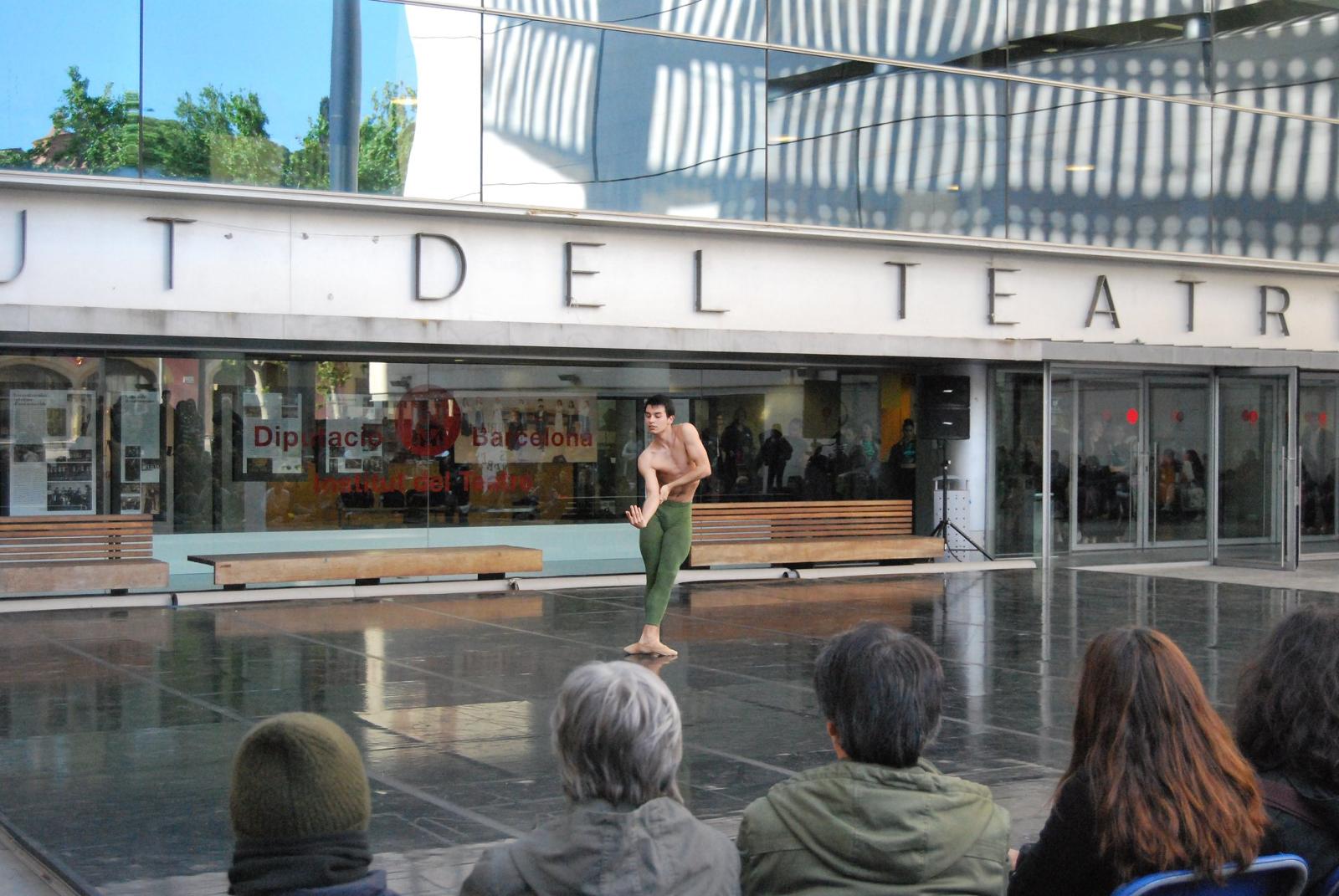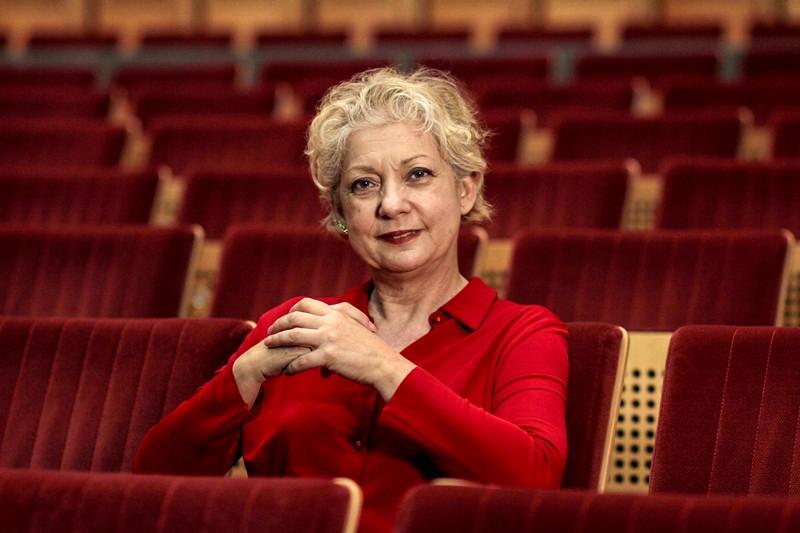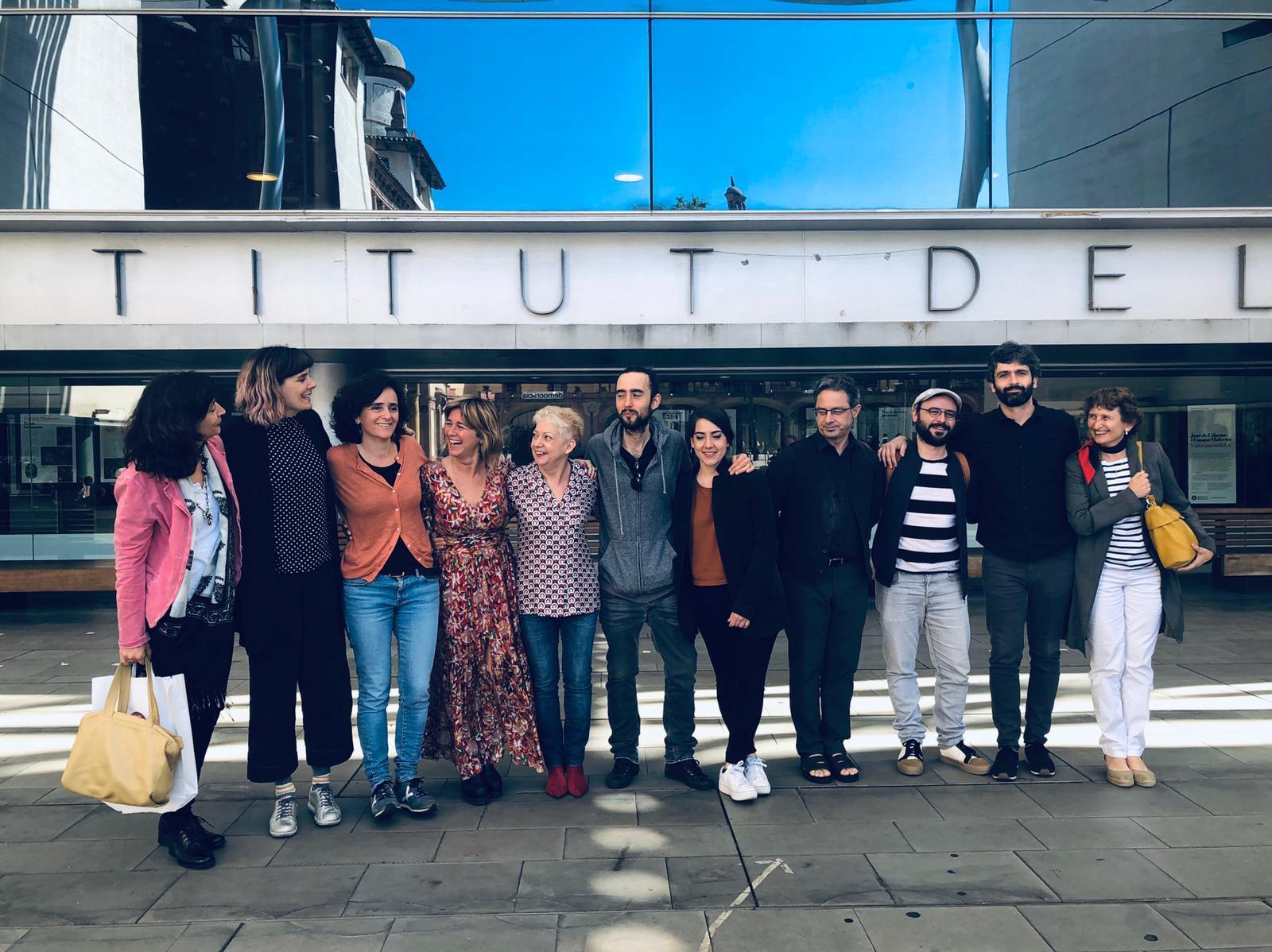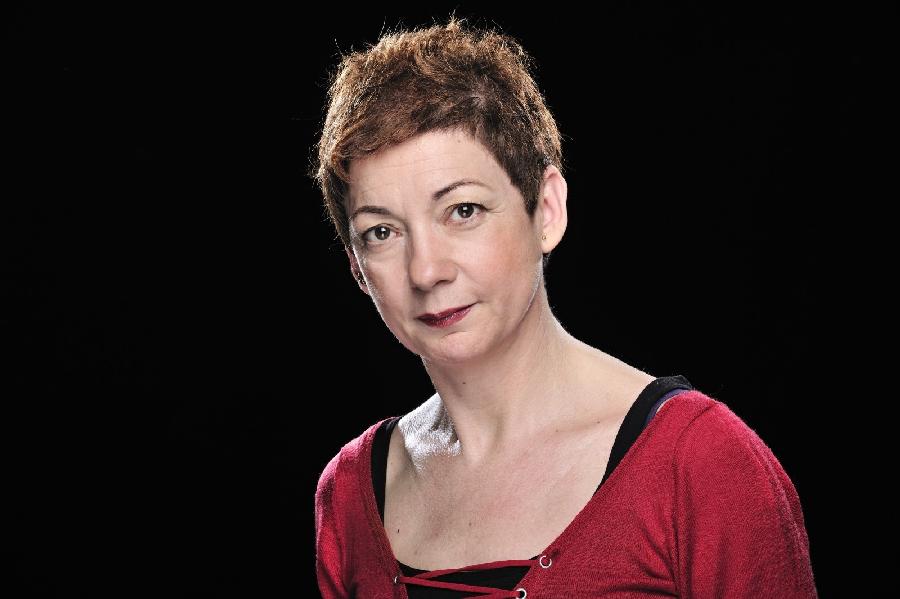Magda Puyo Bové’s vital energy is radically passionate and gets transformed through tireless work and critical thinking. This Philosophy and Educational Sciences graduate has been working in the performing arts for decades. Stage directing and teaching are the pillars of her career: she started out by swimming upstream at the Metadones company, and later founded an association for women creators, Projecte Vaca (now 20 years old). Direcció escènica i docència són els pilars de la seva carrera. Her professional non-conformism has made her a pioneer and a leading light, first at the head of the Sitges Teatre Internacional – Creació Contemporània festival, then as the first ever woman director of the hundred-year-old Institut del Teatre (IT), where she took the helm four years ago now.
Your artistic career so far has mainly involved directing. Have you had to fight for it?
We still have to fight quite a bit. Because parity gets talked about quite a lot but it’s false: men make the big productions, and women, the smaller things with shorter runs. It gets sold as 50:50, but it’s a lie. We mustn’t kid ourselves when we talk about the percentage of women directors, playwrights or technicians in a theatre.
What are your thoughts on the new feminist wave?
I support any feminist activism one hundred percent. But sometimes there’s a problem: ignorance of our own history. We can’t forget that feminists have been putting their bodies on the line – now there’s so much talk about the body – for many years. Sometimes, especially in comments on social media, it even comes across as disrespect towards those who came before us and did more dangerous work than us. Much more dangerous! Therefore, knowledge of these women is just as important as our own activism.
When you started out professionally, did you know you wanted to teach?
I started giving classes at a young age, as a volunteer for people with special needs. I worked with training as a community tool, without much of a structured methodology. In this country, arts training was always self-taught. The generation before mine was very much self-taught, and we learned from them, but now we do things differently, in a more institutional, global way. That’s great but, at the same time, some things have got lost.

Between 2000 and 2004, you directed the Sitges Teatre Internacional festival. What did you get from it, apart from more experience in internationalisation?
Sitges gave me the courage to look for new things and not make do with what I had. I saw that exchanging with others gives you new ways of approaching theatre. Because you don’t copy tradition, you fight with it. And I mean ‘fight’ in a positive sense: you confront it and contrast with it, so that something new explodes that will eventually become part of this tradition.
You also supported young people at the festival. Was that down to your teaching experience?
Probably, because teaching has really affected me. I learn a lot in the classroom. You teach what you can, or the students learn whatever they want from you (she laughs). It makes you let go of some of your prejudices. It also makes you meticulous and helps you develop a very particular critical and analytical spirit when you’re faced with a piece of work you need to assess. So, two sides to you emerge: braveness from your proximity to young people’s new ways of thinking and meticulousness from your desire for their work to be of quality, even if you don’t like it on a personal level.
Now, you’re also the director of the Institut del Teatre (IT).
It never crossed my mind. It’s been four years now, and I’m standing for re-election. Eight years are enough for me. There must be movement in public institutions for generational reasons and because there is a certain degree of wear and tear that, unconsciously, pushes you towards conformity. I believe there must be a revolutionary intention in institutional spaces.
The Institut has always been one of the most sought-after centres. Is this still the case?
This year, we thought we would be satisfied if we reached 50% of the usual number of applicants. But in the end, in some courses, we have higher numbers than last year. In choreography, dance pedagogy, directing and theatre we have had more demand in the entrance tests. People still want to do it: they have faith in culture and art as a vital space.
What has your experience as director been like?
The tempo of any institution is a slow one. That’s why it’s important to carry on, not to be afraid. Apart from Covid, various things have happened to us in recent years, like the European Area concept and changes to course curricula. The change has been quite dramatic. The teaching staff and I have invented a series of teaching methodologies and worked on the inclusion of the arts in general and, more specifically, performing arts in the university system. In Europe, dance and theatre schools are based on three models: the personalised school founded by a particular artist; the school backed by a national tradition, like in France; and centres that are linked to a university.
How does the IT fit into this?
The IT has a long tradition and has grown in parallel to the Catalan university system. This is because from the 1970s onwards, this system’s project was such that some areas, including art, were not included as part of academic research and knowledge. So we had to do our own thing, with the help of professors of art from other universities and by following various models. We work with seven or eight European universities and some American ones.

Apart from relationships with centres abroad, how do you work internationally?
The student and staff mobility programme with thirty European universities provides a constant exchange of knowledge and ways of doing things. What’s more, the Escola Superior d’Art Dramàtic (ESAD), our school of drama, has started up the International Theatre Festival, which is biennial and one of the few in existence in Europe. We’ve organised two editions now and six schools have attended. And we encourage international visits, especially in dance. Over the last few years, what we call the ‘Dance Area’ has been on the up and up, because we’re supporting it staunchly. We have worked with various spaces and festivals in this country, as well as promoting the company’s tours. Before the pandemic, they put on between 25 and 30 performances around Europe. We also work on projects with the Institut Ramon Llull, especially translation ones. We have translated 20 texts thanks to the Mexican publisher Paso de Gato, and now we work with Russia, Quebec, Finland and the UK. And then there’s the Prague Quadrennial, of course.
The IT has been participating in the Prague Quadrennial of Performance Design and Space (last year’s project: there are some nice photos with Magda) since 1987, and it has been representing Catalonia since 2015. Last year’s edition was a great success.
It was wonderful because the Prospective Action exhibition won the Countries and Regions section. It was supposed to be put on at the Grec, but this proved impossible due to the pandemic. Now we’re working towards showing it at the Mercat de les Flors. We also took part in the Students section with the exhibition Theáomai and with a debate, Catalonia, Art and Democracy, at PQTalks. It was all very interesting and controversial (she laughs).
Controversial?
There were complaints from the Spanish state. The central theme of the project was the people’s movement in Catalonia from 2004 to 2018. Prospective Action is a multimedia installation that captures the tension between police control and people’s demonstrations in the public space at different events, such as Can Vies or 1st October. It talks about the people’s right to self-determination, but not directly: it’s like a game.
You’ve become an icon in the Catalan protest movement.
You can’t stay numb to it in this context. But it seems like they are trying to paralyse us. And, more than ever, we have to stand up to whoever is in our way. If it’s the police, then the police; if it’s authority, then authority; if it’s false authority, then false authority, because authority tends to be just that: false. Authority is always moral, it never emerges from force. If they put someone with force in front of you, you need to stand up to them. That’s what Jordi Borràs’s photo is about. He has force on his side, I don’t. But I stand my ground to see what he’s capable of doing to me.

What’s the outlook for the new academic year?
As for the academic year, I’m far from pessimistic. All the teams are working together to achieve a lot. With a series of restrictions, but we have enthusiasm and young people’s vitality on our side. Transformed into artistic expression, this is always a positive thing.
And in terms of the current context?
It’s such a nasty crisis! Suddenly, it seems like we only have a health crisis on our hands. But no, there are economic and human crises too. What is happening with the migrants in the Mediterranean is as serious or worse than Covid. Then there is an enormous democratic and political crisis, and the rise of neofascism. I feel like I’m living through a paradigm shift and that contaminates our everyday lives. We must be alert and maintain a critical, rebellious position, in the sense of not conforming. I’m not optimistic, because I don’t blindly trust human beings. Even so, I am full of life and believe we must always fight for human life to be as decent as possible.

